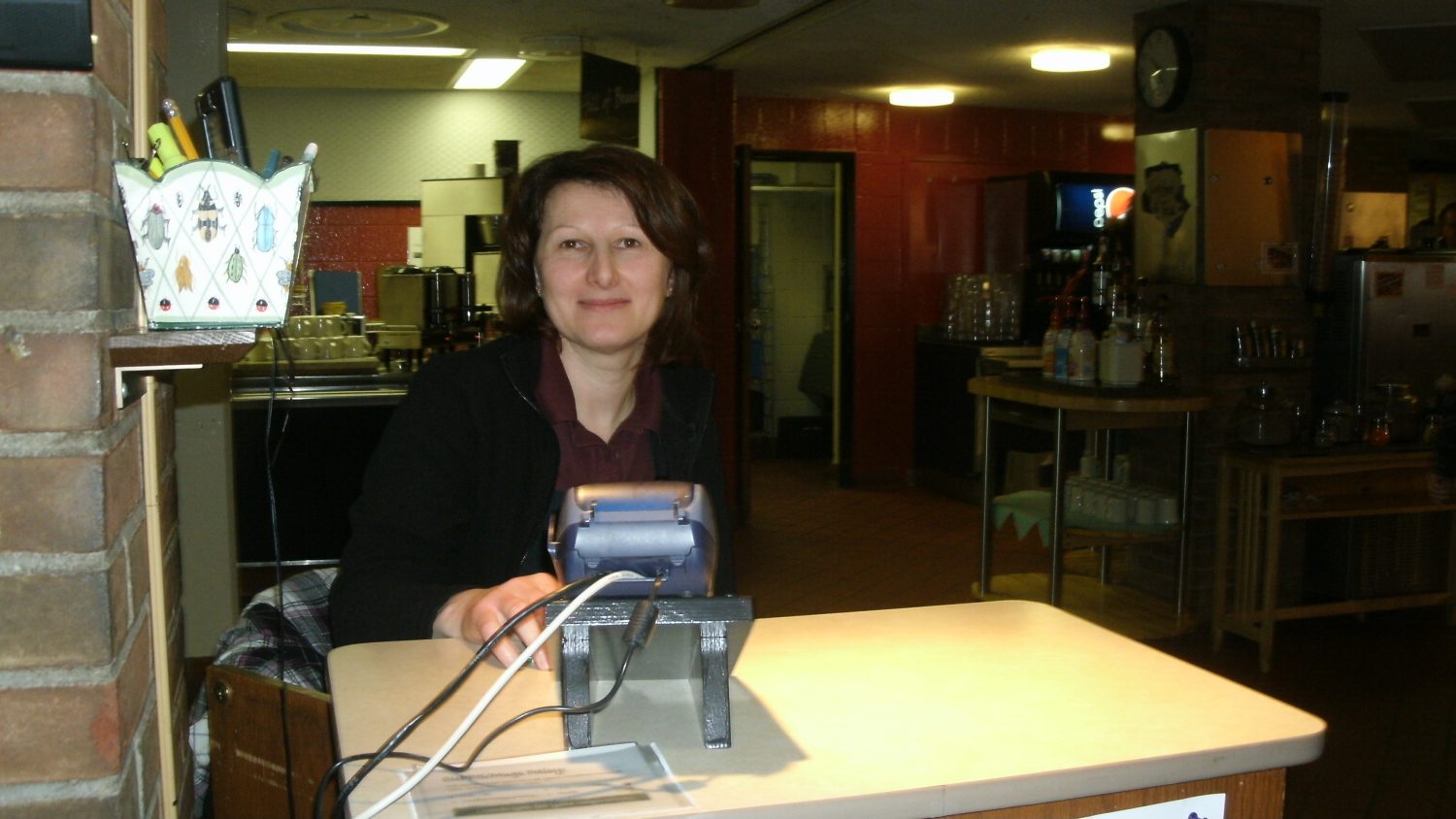Sebiha has already been up for three hours, but she still greets every student filing into the dining hall with a cheery “Happy Friday!” as she swipes their ID cards. Most smile back. “I don’t always want to talk in the mornings,” she says, “but I try for every student.”
Sebiha Valjevac has been a fixture of Commons Dining Hall for 14 years, but few students know her story. Sebiha, along with four of her coworkers, came to Michigan from war-torn Bosnia at the end of the 1990s.
It may seem surprising that five citizens of a tiny Eastern European country would find work in the same college dining hall. But Sebiha and her coworkers are only a few of the 145,000 Bosnian refugees the United States took in after a bloody civil war. Together, they make up the third largest group of refugees in the United States’ recent history.
Of those 145,000, close to one out of every 10 ended up in Grand Rapids. In the last two decades, immigration officers estimate that around 16,000 Bosnians eventually settled in the Grand Rapids area, making Grand Rapids the second largest community of Bosnians in the United States.
This means that there is a lot of local Bosnian culture. A Bosnian-language newspaper, “Fifth Side of the World,” is run by a Grand Rapids resident. A radio show, WYGR-AM, broadcasts a talk show produced in Bosnian.
For a taste of Bosnian culture, Sebiha recommends the Bosna Express on 28th Street, “just down the road” where she says students should try the “cevapi.”
The journey Sebiha took is a common one. In 1992, Bosnia — which had formerly been part of Yugoslavia – erupted into a war with ethnic cleansings and unchecked violence. The war lasted three years and displaced around one million people — nearly a quarter of the population.
Sebiha will not talk about what happened during that time, only that she and her family fled to Germany. There, they applied for asylum in both Canada and the United States. They chose the United States, where they arrived in 2000, because the waiting list was six months longer to get into Canada.
Immigration officials in Germany “were pressuring us to leave as refugees,” said Sebiha, “We did not have much time.”
Edina and Idriz Civac left Bosnia at the same time as Sebiha. Edina found work in Commons’ dish room soon after arriving, while Idriz worked at a steel factory. After the factory closed, Edina helped him get a job with her. Now, Edina works mornings in the dish room and Idriz works the same job at night.
While English forms a challenge, their work ethic is admired by their coworkers. “They do not have a lazy bone in their body,” commented their supervisor Lindsey Cato.
Their job certainly is not easy. Commons’ dish room is rushed and noisy, filled with the spray of hot steam and the clattering of trays. A rotating belt sends trays of dirty dishes past workers who quickly sort dishes by type before they’re fed into a small tunnel where high-powered steam jets spray them clean.
Despite his chaotic surroundings, Idriz works with a slight smile on his face. He is good at his job, and says he enjoys it. On the occasions that his shift overlaps with that of his wife, they work quickly and silently, but take breaks together laughing and talking softly in Bosnian, a soft language with enough k’s, j’s and z’s to make a Scrabble player drool.
Idriz, who speaks little English, is close to the Bosnian community in Grand Rapids. When asked if he knew other Bosnians, he laughed. “I know 10,000.”
After 14 years in Grand Rapids and at Commons Dining Hall, Sebiha, Edina and Idriz have made their home here.
“I just love these kids,” Sebiha says. “Hello,” she says, welcoming the next student in line, “Happy Friday. You look beautiful today!”









